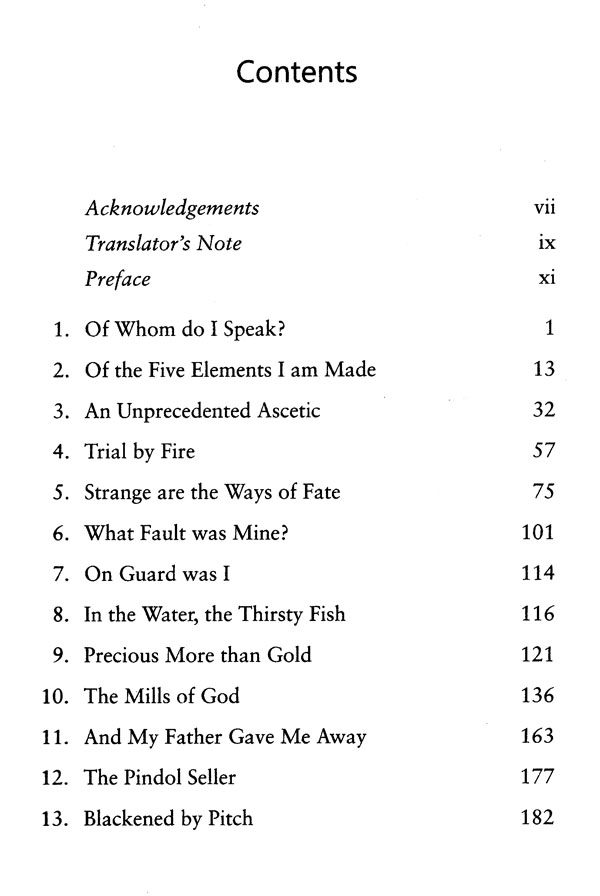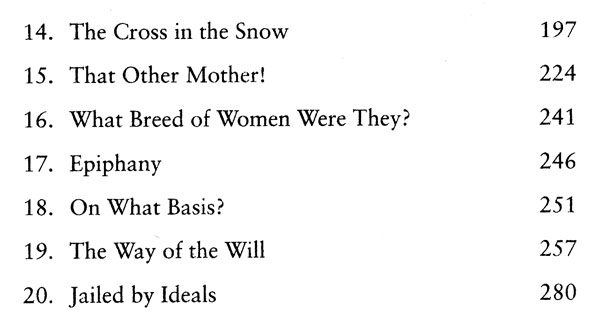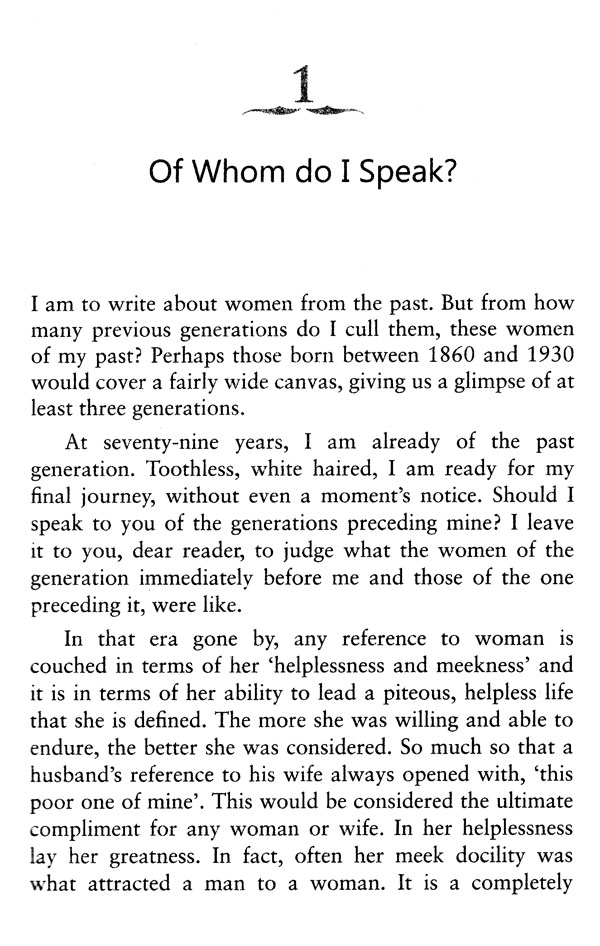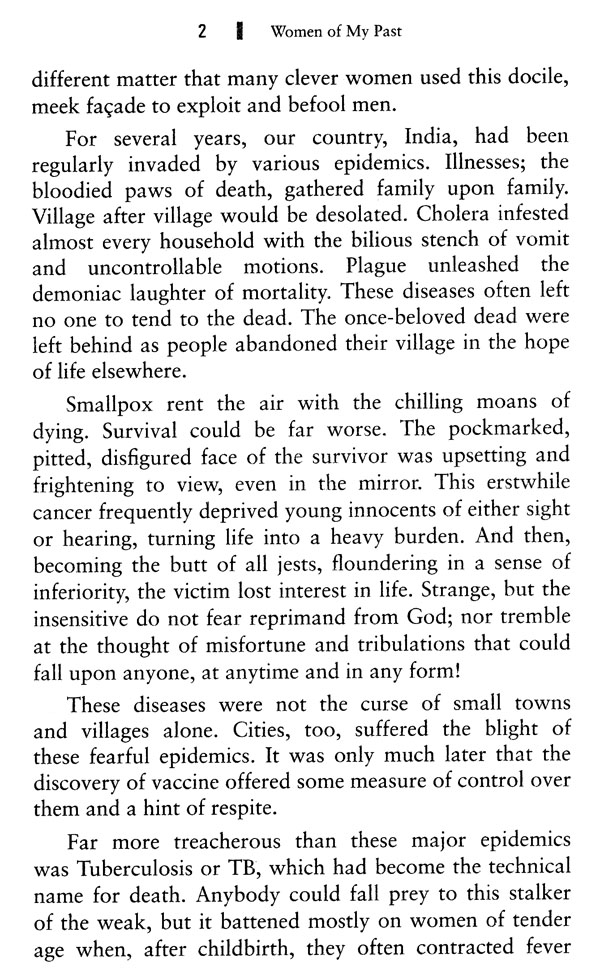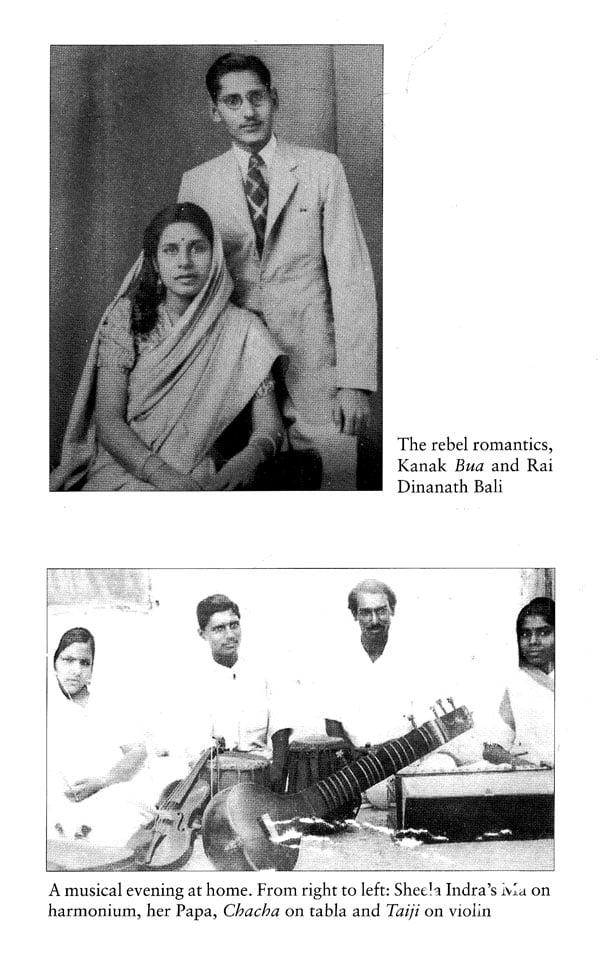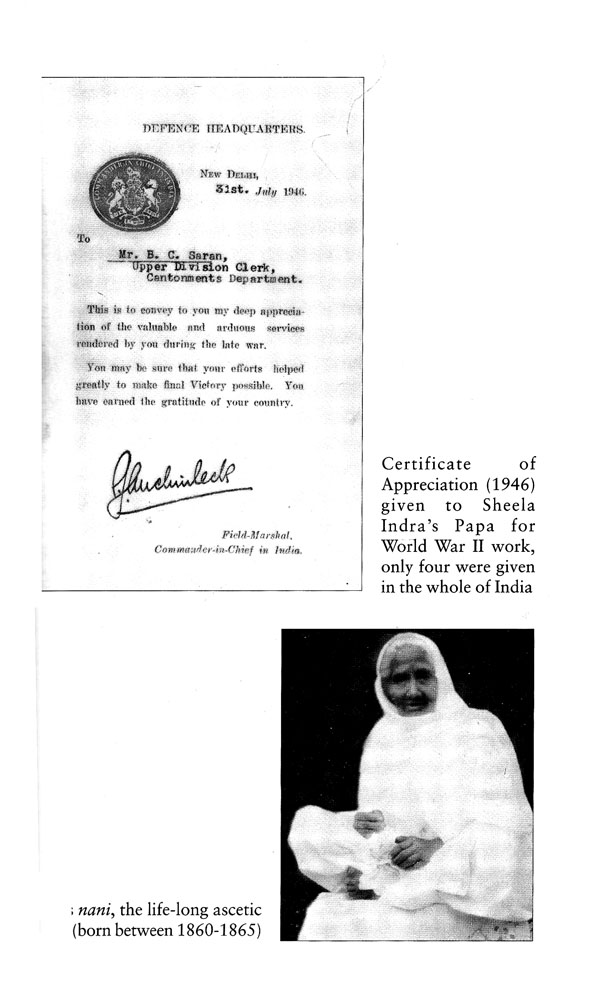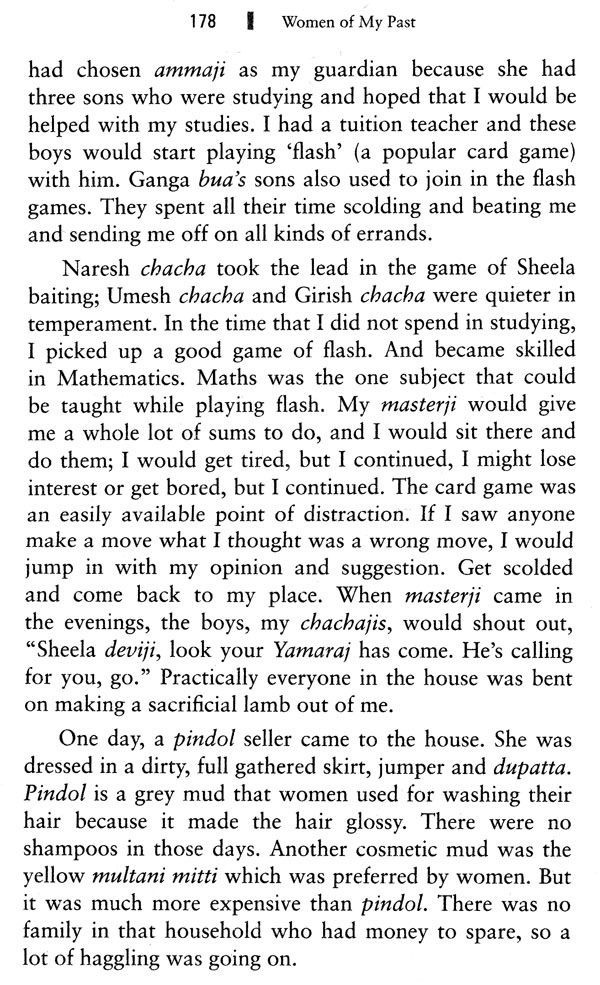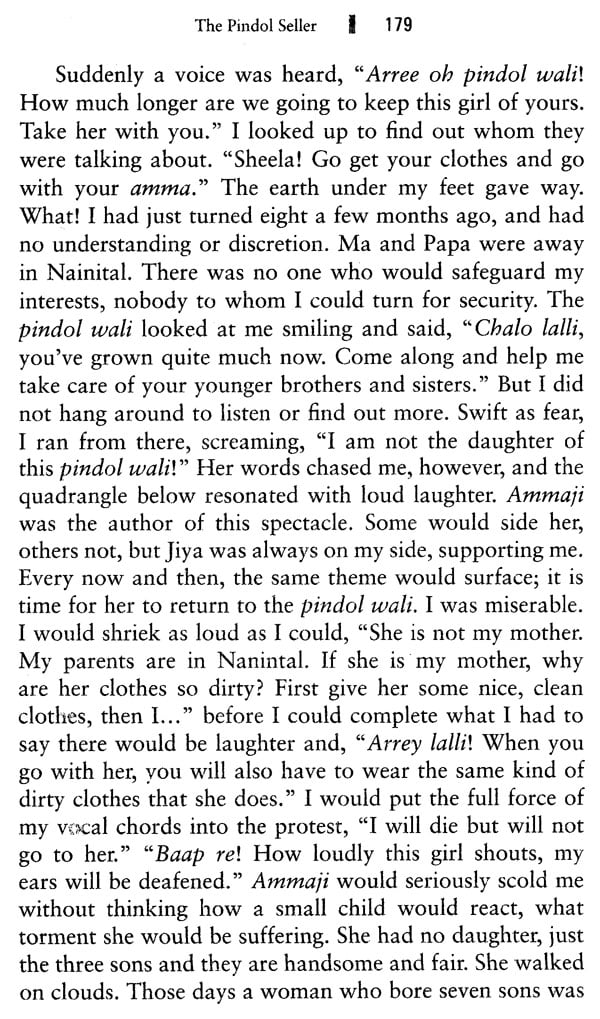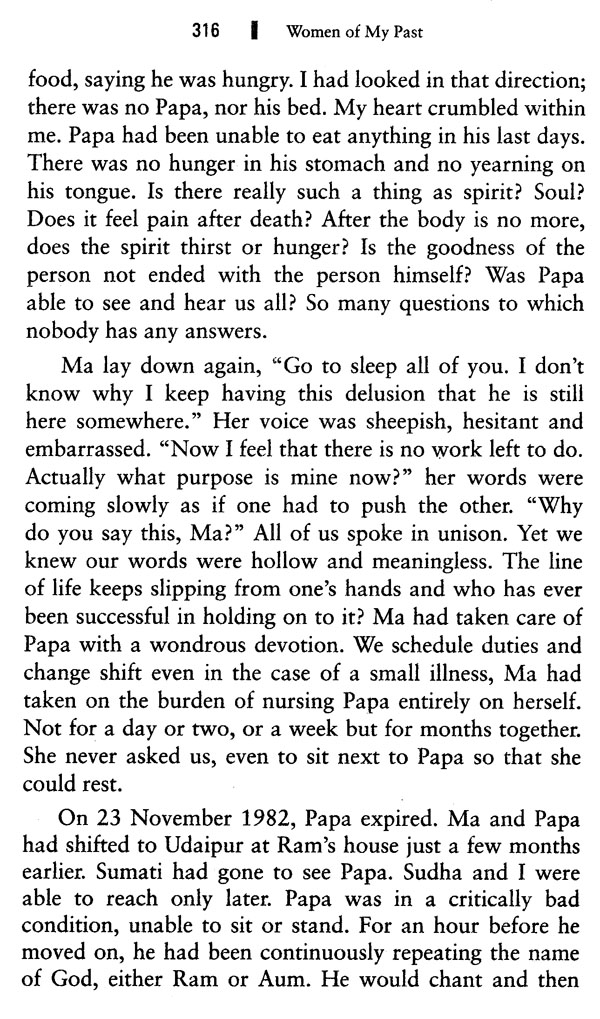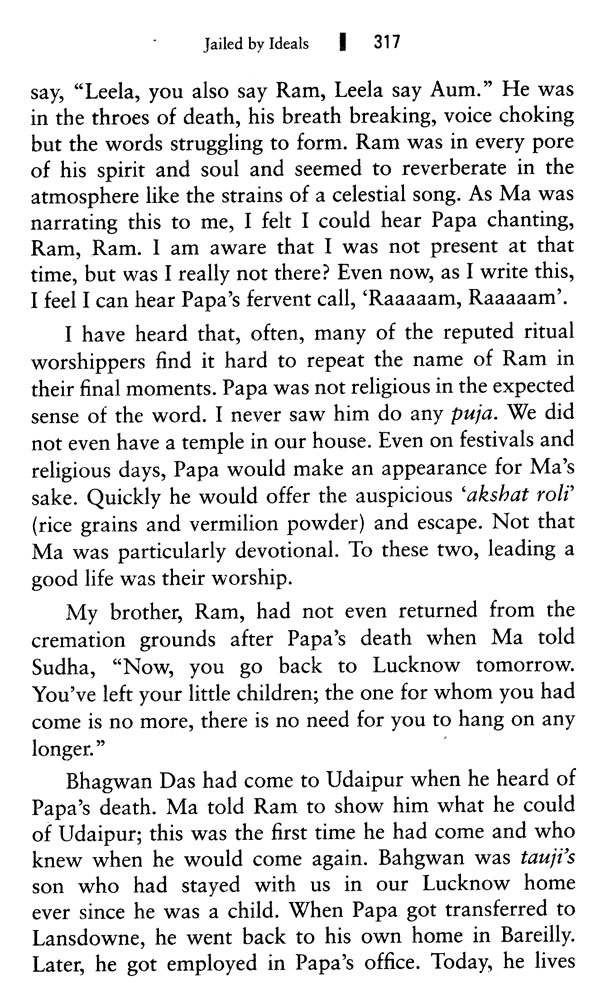
Women of My Past
Book Specification
| Item Code: | NAZ557 |
| Author: | Sheela Indra and Abha Sah |
| Publisher: | National Book Trust, India |
| Language: | English |
| Edition: | 2015 |
| ISBN: | 9788123774077 |
| Pages: | 326 (7 B/W Illustrations) |
| Cover: | PAPERBACK |
| Other Details | 9.00 X 6.00 inch |
| Weight | 340 gm |
Book Description
The book traces the lives and tribulations of three generations of women, born between the years 1860 and 1930. Sheela Indra’s--women remain graceful fighters, passive or active. Written as a memoir, it recreates the socio-economic conditions and the often suppressive environment of those days, and paints vibrantly the gradual change that preceded today’s woman.
Sheela Indra, born in 1931, is a writer of Hindi short stories for adults and children. A whole generation of children has grown up looking forward to her stories in Parag, a popular children’s magazine. She has written plays for AIR. After an arid phase, she returned to writing and her works have been published in leading Hindi magazines like Naya Gyanodaya, Kathadesh, Navneet and others. Her anthology of short stories is called Ek Bada Sawaal. The Women of My Past was originally published in Hindi as Kya KahuN Kya Na KahuN.
Abha Sah retired after teaching English for almost two decades before turning to translating from Hindi into English. This is her first full length book of translation.
And I held on to the chaff...
Sudha Arora, the well-known Indian writer, called me up one day and after a bit of talk asked, "Sheelaji, what is your age?"
"Nearly eighty, why?"
"I am publishing a serialized article called Aurat ki Duniya (The World of Woman) for Kathadesh; many women writers have already been published here. I was wondering if you can recall something about any woman from your previous generation..."
On the phone, there and then, I told her a few incidents from the past. She was delighted.
"Arrey, you have a store of stories about women who were born more than a century ago. Can you send me some in writing?"
I sent her an account of my cruel dadi, whose heartless behaviour was not limited to her daughter-in-law but assaulted her dying son as well. That son had damned her in broken breath.
"T did not know that a mother could be like this."
This was published in the March 2009 issue of Kathadesh.
My younger sister, Sumati, read that and called me up.
"Jijji, you lived in Bareilly for so many years... write
about those years, incidents about Ganga bua, Jiya and the others... you will have enough material for a whole book."
That was my inspiration for this book.
To write about several women belonging to the same era of a family in one book is difficult. So I attempted to write about incidents that affected or inspired and impressed me from the lives of the many women in our vast extended family; women who were born more than a century ago like my dadi, pardadi, nani, buas, mausi and Papa’s nani have featured in disparate stories in this book.
I can only call this an ‘attempt’; to know their lives, their feelings, their work and play in all inclusive completeness is unthinkable; if known, to write it 1s impractical. The issue that I faced was what I should write and what I should not write about all the women of my past. What I have attempted, and which gives me some measure of satisfaction is that I have managed to portray within one extended period of time the rise and fall of an ordinary family. I have created successfully the mental, emotional and financial condition of the women of those times; the reasons and consequences of their actions have been included. Their relationships with father, husband, son, grandson, brother and other men; the social tenets that bound and guided them as well as the laws and rights that governed them; also how the women lived as daughter, wife, daughter-in-law and mother-in-law «nd how in the same family, under the same roof, people with different financial status managed to live in harmony. Also portrayed is the reaction of a family to the birth of a daughter. Those were different times and they were different people. Both good and bad.
My attempt has been to portray events as they happened, as I heard of them. It was not difficult to write of an incident as I saw and understood it, I have added or subtracted nothing, nor have I passed judgment.
I have found it the hardest to write about my mother. Perhaps because a mother is perfect for every child and I was only nineteen when I left my parental home, still a child. I was still too immature to have a proper understanding of life. It was difficult to distance my mother from my image of my mother. I often felt that there was nothing write-worthy about my mother’s life; then there was also the thought that without mention of her, this book would not be complete. Grappling with this indecision, I came upon the realization that my mother and father were complements of one another; without the other each was incomplete. I could not have written about Ma without including Papa and when [ decided to write there was no stopping. My real problem was how much and what do I include and exclude? The decision was unsurmountably difficult.
I spoke to Sumati on the phone. She was also of the opinion that I should just let go, and not write about Ma. She was apprehensive that my failing health and intermittent illnesses might jeopardise the book if I continued to be indecisive about Ma. On the other hand, she did value my sentiment that without Ma the book would be incomplete. So she asked me to mail her all that I had written when I started to read out a bit on the phone. :
Book's Contents and Sample Pages
